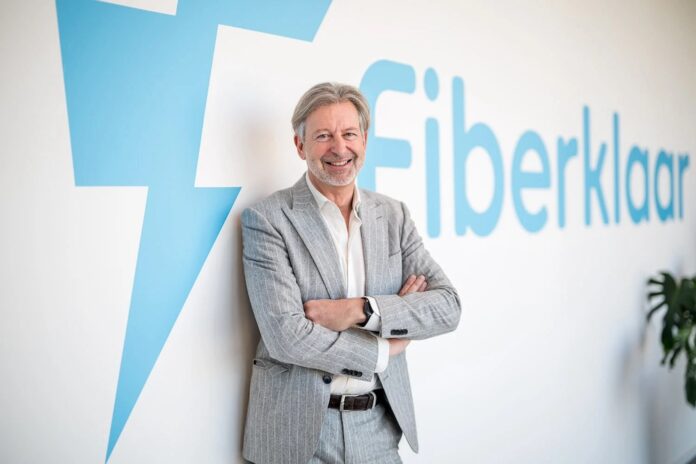Network now reaches more than 4,000km in 97 municipalities
Belgian fibre wholesale provider Fiberklaar has appointed Jo Van Gorp as its new CEO replacing Rik Missault. The operator, a joint venture between Belgian full-service operator Proximus and Sweden’s EQT Infrastructure, recently reached 4,000km of fibre deployed since the beginning of its rollout of its network in March 2021. Fiberklaar plans to invest more than €2.5 bn ($2.7 bn) building an open access fibre-optic network which will connect at least 1.5 million homes and businesses in the Flanders region by end-2028.
Van Gorp has held executive positions at several service providers – including Telenet where he was VP residential markets – and was an advisor in the establishment of Fiberklaar. He also worked for MFS Communications and was CEO of Level 3 Communications in Belgium. He also sits on the board of directors of Zenitel, a global specialist in critical communication systems and was chairman there until 2021.
“I am proud that I can work with a fantastic team on the further fibre optic rollout in Flanders. Fibre optic forms the backbone of the further digital acceleration that we must fully focus on,” he said. “At the end of 2023, we were active in 97 Flemish cities and municipalities and installed more than 4,000 km of fibre optic [network]. I am looking forward to bringing fibre optic to even more homes in Flanders together with our more than 110 enthusiastic ‘FiberClifiers’ and eight construction partners in the coming years.”
“With Jo, we have chosen someone who helped lay the foundations of Fiberklaar and has experience in further scaling up telecom companies,” said Fiberklaar chairman Ronny Verhelst. “We would like to thank Rik Missault for the work he has done over the past three years, which has allowed Fiberklaar to grow from a new utility company to a well-known and recognised fibre optic player in Flanders.”
Fiberklaar has signed on several ISPs to sell retail services including Proximus, edpnet, Mobile Vikings and Scarlet. The operator also offers a WANConnect for retailers targeting the business market. Van Gorp said 2024 will see the operator focusing on close collaboration with construction partners and local authorities.
“Fiberklaar strives to continuously improve its operation. In the process, we discover new opportunities that contribute to an even more efficient and qualitative rollout,” he said. “We are convinced that we can continue to structurally improve the customer experience in this way.”
Broadband still expensive
Higher speed bundles in Belgium are still expensive despite the various fibre builds taking place in the country. In December, regulator BIPT published a comparative tariff study which showed that for fixed internet and bundles “became remarkably more expensive as the user’s requirements went up” – a similar finding to the previous year.
Belgium remains notably more expensive for every consumer profile than France and the United Kingdom, which are by far the cheapest countries in the study. Belgium remains reasonably affordable for limited triple play needs (30 TV channels, 50 Mbps download speed and fixed telephony) thanks to Scarlet’s offer.
For stand-alone Internet or Internet in a bundle with mobile Belgium is still in line with the Luxembourg and Germany but becomes increasingly more expensive than the same countries as the needs to be fulfilled increase. Overall, in both Belgium and its neighbouring countries, prices for fixed Internet and bundled offerings generally increased in the past year. The regulator surmises that although fixed competition was softening, the potential launch of bundles with fixed Internet by fourth mobile operator DIGI could lead to a revival of competitive dynamics in the fixed market.



